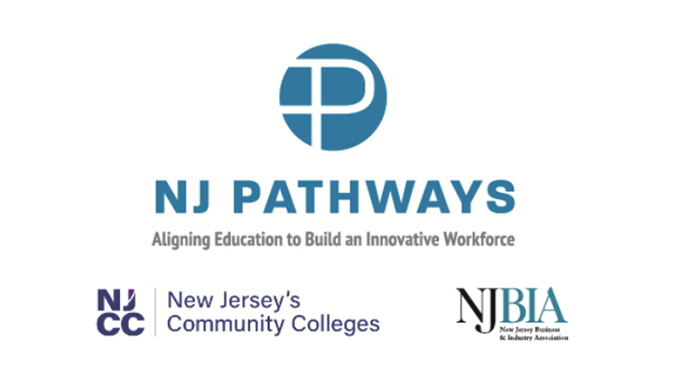New Jersey’s Community Colleges and the Garden State Employment and Training Association (GSETA) recently announced their partnership to strengthen New Jersey’s workforce and economy.
GSETA is taking a key role in the New Jersey Pathways to Career Opportunities Initiative, led by New Jersey’s community colleges and NJBIA. GSETA’s Workforce Development Board directors spoke at the June industry collaborative meetings, which began June 8 for Manufacturing and Supply Chain Management.
At each of the four industry collaborative meetings, industry and education partners from across the state and various sectors come together to share labor market intelligence, as well as discuss key topics regarding workforce development and education issues. The pathways initiative is creating a connected education ecosystem to industry and has more than 1,000 industry and education partners since its kick-off in December 2021.
With a mission to align education to build an innovative workforce, the pathways initiative is comprised of four industry collaboratives which are statewide inclusive groups of industry leaders and educational partners across the state focused on the four key industries of the state’s economy; (1) health services, (2) infrastructure and energy, (3) manufacturing and supply chain management, and (4) technology and innovation. The pathways initiative will expand economic mobility for students and adult learners and drive economic growth for the state’s employers.
“Our shared vision for an improved workforce and education ecosystem is the foundation for this collaboration. This formal partnership between New Jersey’s community colleges and GSETA helps prepare all New Jerseyans for family-sustaining careers by providing education and training that aligns with the needs of business to strengthen our state workforce and economy,” said Aaron Fichtner, Ph.D., president of the New Jersey Council of County Colleges (NJCCC).
Fichtner added, “As a result of the pandemic, the skills gap has widened, leaving our education, industry, and workforce partners searching for ways to better prepare our workers for the needs of business. As we respond to these challenges during this critical moment, a partnership with GSETA will help us create a more resilient economy by leveraging every opportunity across statewide education and workforce systems to better align efforts and maximize resources.”
“GSETA’s mission is to ensure that New Jersey's workforce development system is demand-driven and responsive to the needs of employers, their employees, and job seekers through skills training, career pathways, and other employment supports. This partnership with New Jersey’s community colleges will help us achieve our goals,” stated GSETA President Kevin Kurdziel.
About the New Jersey Council of County Colleges
The New Jersey Council of County Colleges (NJCCC) was created in 1989 to support and promote New Jersey’s 18 community colleges that now enroll more than 300,000 people each year in credit, non-credit, and workforce development courses at more than 70 campuses throughout the state. More than 200,000 students – over half of all undergraduate students in public colleges and universities in the state – are enrolled at New Jersey’s community colleges. The community colleges also enroll nearly 100,000 students in non-credit programs and partner with thousands of businesses to meet their training and workforce needs.
The Garden State Employment and Training Association
The Garden State Employment and Training Association (GSETA) is the statewide organization that supports the needs of the state’s workforce development system and workforce development boards (WDBs). The state’s workforce development system and 17 WDBs oversee workforce development programs across the state that provide training and employment placement to the unemployed and underemployed. In doing so, GSETA assists all the state’s employers gain access to a well-skilled and innovative workforce.




